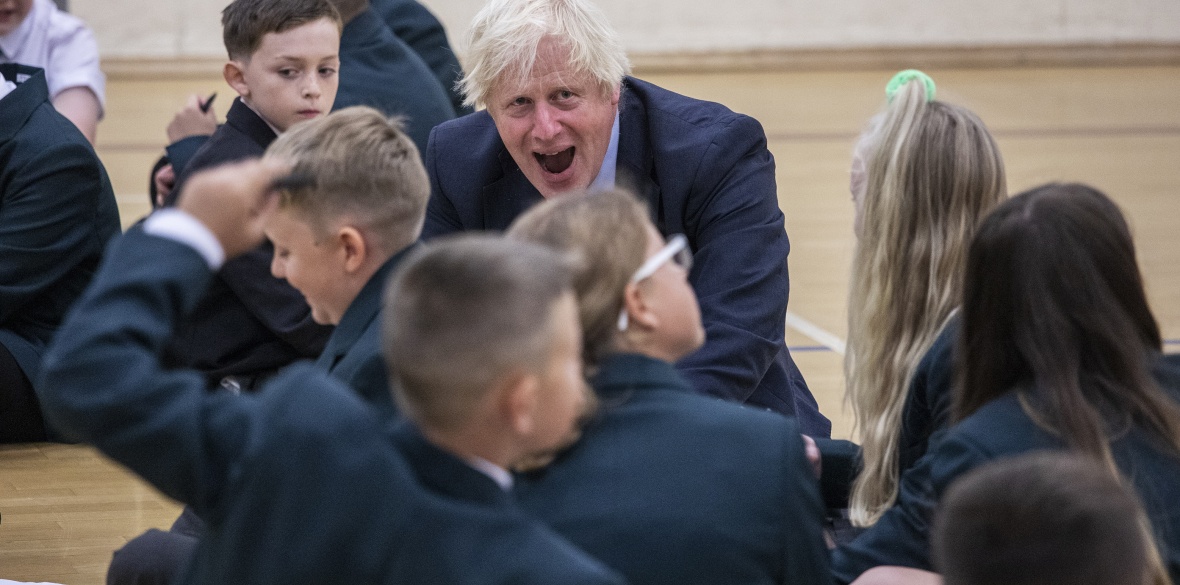This is the last article you can read this month
You can read more article this month
You can read more articles this month
Sorry your limit is up for this month
Reset on:
Please help support the Morning Star by subscribing here
SCHOOLS are back and the coronavirus is on the rise again. All around the country, teachers are trying to make sense of the new regulations to ensure that they and their pupils are safe: year-group “bubbles,” masks in communal spaces, teaching from a small box at the front of the class — the challenges are immense.
But every teacher I know is glad to be back at the chalk face. We’ve missed the interaction with our classes and we know that, for some pupils, school is the one safe place they have.
The one place where they can escape the grinding poverty forced upon them by a decade of Tory austerity. The one place they can get a warm meal.
Already though reports are coming in that, despite the Herculean efforts of schools, bubbles are being sent home — in some cases whole schools being shut — with staff and pupils testing positive for the virus.
The testing regime, outsourced to private contractors, is of course buckling under the pressure. Teachers are being told that to get a test they must drive hundreds of miles. The lack of testing means that they are stuck at home in limbo.
There is one method though that will ensure you get a test: get a job at Eton College. We heard this week that every child and teacher at Eton was tested for Covid-19 and another private school has spent £35,000 on a Covid-19 testing machine.
This shouldn’t come as any surprise of course. State schools in England have suffered their worst decline in funding since the 1980s — even with the pledged increases in funding, school spending will be lower than it was in 2009-10. All the while, private schools continue to flourish, profiting from dodgy algorithms and lavish resources denied to working-class children.
Throughout lockdown (despite what the Daily Mail will tell you) teachers have been working continuously, via live lessons, online assignments and more, often using technology they are unfamiliar with and whilst also juggling their own childcare commitments.
The chaos caused by schools being closed has made clear the essential role that teachers and education workers play in society — and to thank us for this, the government has promised a pay rise described by education unions as “divisive and inadequate.”
2.75 per cent for teachers and support staff is indeed inadequate, and is nowhere near the 7 per cent the National Education Union say is needed to start to put teacher pay back on track after the crippling cuts to teacher pay.
Over the past decade of Tory misrule, teachers and support staff have lost some 15 per cent in pay against inflation as a result of public-sector pay freezes. When we have had a pay rise it has been below inflation.
The biggest winners in this round of rises are new teachers, who will receive the biggest share of rises with a 5.5 per cent increase, which is what has led to the accusation of the rise being “divisive.”
This does not go far enough to tackle the “severe and persistent” lack of staff as quoted by the School Teachers Review Body. I agree with the National Education Union that education workers need a fair reward, automatic progression for all, national pay increases for all and nationally agreed pay scales for all.
We are looking at hard times ahead — and even this small pay rise will be needed, and schools must ensure that all staff get it. We also need to campaign for a decent settlement for those on supply contracts: supply teachers regularly complain about being forced to work via supply agencies that rip them off by paying them far less than their value.
While Boris Johnson is worrying whether or not his £150K salary will be enough to pay a nanny, last year we heard reports of teachers being forced to use food banks. This cannot continue to happen.
These pay cuts, when you combine them with damaging and unfair performance-related pay and the dismantling of national pay arrangements, only serve to drive teachers out of the profession.
If the government seriously wants to know why so many teachers don’t stay in the profession, this is one place to start looking. In fact, they already know the reasons yet choose to do nothing about it.
In 2018 a research report commissioned by the government, “Factors affecting teacher retention,” showed that pay and performance management “was an important factor mentioned by teachers when teachers were questioned about their reasons for leaving the profession.”
This year has been one of the hardest for teachers and we need to let the Department for Education know that performance-related pay has to go.
Firstly it would be unfair to judge teachers when they have been out of the classroom for nearly six months. Secondly, research from around the world, including the Education Endowment Foundation has shown that it doesn’t improve pupil outcomes, doesn’t motivate teachers and undermines professional co-operation. In fact other studies have shown that higher staff pay actually leads to improved pupil performance.
Teacher goodwill is hanging by a thread at the moment, with staff teaching under exceptionally difficult circumstances: despite schools being mostly closed there were at least 126 deaths of education workers involving Covid-19 between the start of the outbreak and May.
Our support for wider opening of schools should not be taken for granted. It won’t take much to tip the balance.











